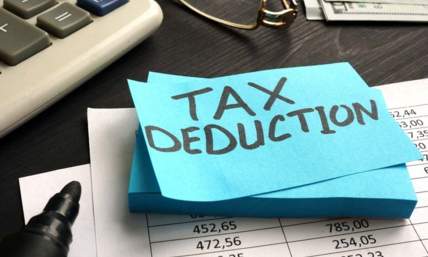How Much of My Income Should Go to Rent? - The Full Guide
How much rent you should pay? Is renting better than buying? Does renting make sense?
These are the most commonly asked questions about renting and paying rent, and it is understandable considering today’s market and the seemingly never-ending rise in living costs.
We all need somewhere to live and call home. It’s not always possible to reside with family members, and not everyone can afford to invest in owning a property straightaway. And that’s where renting comes in.
Renting involves less commitment and offers more flexibility overall. But how much should you spend on rent?
First of all, let’s define some important key terms before we get into this guide.
Income - any kind of incoming money, including work, investments, and other profits
Salary - work income, can refer to monthly but typically signifies total annual work income
Wages - weekly or monthly work income, but typically monthly
And for the sake of clarity, all budget calculations in this guide will be based on your salary after income taxes.
So, without further ado, let’s jump into this complete guide to paying rent.
Also read: How to Provide Proof of Income

How Much Can I Afford to Pay in Rent?
Before renting any kind of property, how much you can afford to pay in rent is the most important question to ask yourself.
Of course, this will depend on how much your annual salary is (yearly income). But it is not just that.
Things to also consider include your lifestyle from a financial standpoint, as well as how much you are willing to adjust budget-wise, if necessary.
This can also depend on how long you are planning to rent for.
Renting properties is often a six-month or year-long commitment (contract), with an upfront cost for the security deposit, which is calculated as a month, sometimes two, in rent. So, before renting, you will need to make sure that you can commit financially.
Ultimately, the key to knowing how much rent you can afford to pay is by budgeting your fixed income.
Also read: Wage Vs Salary
How Much Rent Should I Pay Based on My Salary?
How much of my income should go to rent?
Budgeting your fixed income is how to find out how much rent you should pay. Fixed income is typically your work income, so that is what we are going to use here to calculate rent expenses.
As a general rule, you should allocate no more than 30% of your total salary to rent.
Remember, this is after income tax, and does not include utility bills, such as electricity, gas, and water.
Why the 30% rule? The 30% rent rule is a reasonable amount to spend on rent that leaves an ample budget for other expenses, such as utility bills, groceries, transportation, health, and personal spending (entertainment, shopping, eating out, vacations).
The 30% rent budget should be calculated on a monthly basis. This is far more accurate than calculating your budget yearly, and can still be applied if you are just renting for six months.
To calculate this, take your monthly work income after taxes and find 30% of that number by using an online percentage calculator. Alternatively, calculate 10% and then multiply it by three. The final number will be the maximum you should spend on monthly rent.
Also read: Proof of Income for a Mortgage

Is Renting a Waste of Money?
You are not alone if you have ever wondered whether renting is a waste of money. When many other people are renting to own or paying a mortgage, renting can seem like throwing money away.
The thing to remember is that renting a property is providing you with a home - shelter, warmth, and somewhere to maintain yourself. Everyone needs somewhere to live, and it does not necessarily have to be a place that has been bought outright.
Why is renting considered a waste of money?
Renting can be viewed as simply handing money over to a landlord, despite there being other options that allow you to eventually own a property.
While this is true to some degree, renting does have its benefits over buying.
Renting can be cheaper, and it also offers more flexibility - not only budget-wise, but in terms of moving location and either downsizing or upsizing.
Also read: How to Save Money For a Car
Is Rent Cheaper Than Buying Long Term?
Renting vs buying - which one is cheaper when looking at it long-term?
Unfortunately, there is no definitive answer for whether renting or buying is cheaper long-term. The only answer is that it depends.
And what it mainly depends on includes:
-
the current market
-
the value of the property you are renting or buying
-
how flexible you can be with your budget
Real estate changes in value due to a constantly fluctuating market, based on demand and the general state of the economy. This is the case for both rental properties and properties for sale. And for this reason, renting can sometimes be cheaper.
Of course, the value of the property itself is another big factor. In general, rented properties (apartments) are smaller than properties that are mortgaged, as people tend to invest in houses. This can also make renting cheaper.
At the same time, rental apartments can cost less in gas, electricity, and water, due to generally being smaller than houses.
More reasons that renting can be cheaper include the fact that renting does not require a deposit/down payment, maintenance costs (repairs are paid by landlords), or estate tax. Mortgages can also be more expensive if the mortgage is being paid at an adjustable rate.
Can I Spend Half My Income on Rent?
If the 30% rule seems too low, can you spend half of your income on rent?
Spending half of your work income on rent is generally not recommended. It is not financially wise on a long-term basis, and does not leave an ample budget for utility bills, groceries, transport costs, and personal spending.
Despite this, it is possible to spend half your work income on rent if you budget wisely and/or do not lead an expensive lifestyle - and are happy doing so.
If you prefer a more appealing place to live, nothing is stopping you from spending half of your income on rent if you do not spend much on bills, transport, vacations, eating out, shopping, or entertainment, and do not support any immediate family.
In general, however, it is not considered financially wise when looking at it from a long-term perspective.

What is the 50 30 20 Budget Rule?
Lastly, one of the most commonly used budgets is the 50 30 20 budget. But what is it and why does it work?
The 50, 30, 20 budget splits your work income into living costs, entertainment costs, and savings, respectively.
More specifically, 50% (living expenses) should be allocated for rent/mortgage payments, utility bills, groceries, transport, and general health costs.
30% (entertainment) should be allocated for shopping (clothes and consumer products), travel (vacations), eating out and takeouts, concerts, nights out, etc.
Finally, 20% should be allocated for savings, optional investments, and any debt payoffs.
The 50 30 20 budget rule is a simple yet popular budgeting plan that reasonably accounts for most lifestyles and living costs. Of course, it can also be slightly adjusted to suit your specific expenses on a personal level.
Just remember: while the 50 30 20 budget involves allocating 50% of your work income to living costs, this includes utility bills, groceries, transport, and health expenses. If you follow the 30% rent rule, that would leave 20% for utilities, groceries, transport, and health.
Also read: What is the 50 30 20 Rule?
Conclusion
As a general rule, it is financially wise to allocate 30% of your work income (after taxes) to renting property.
This is a reasonable amount, ideally calculated from a monthly budget, which leaves an ample amount for utility bills, groceries, transport, and personal spending, as well as any savings.
The 30% rent rule does not include utility bills, such as gas, electricity, and water, as well as any phone bills and internet bills.
Your check stubs can be a great way for you to keep track of your finances so you can easily add the figures to your spreadsheet.















